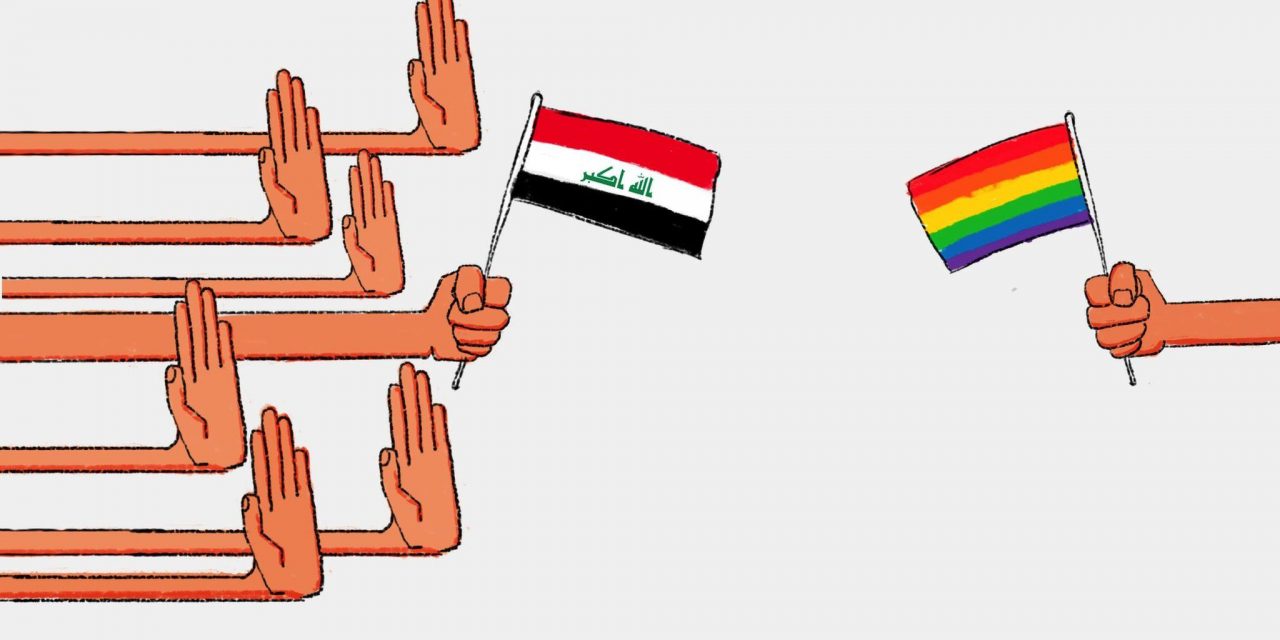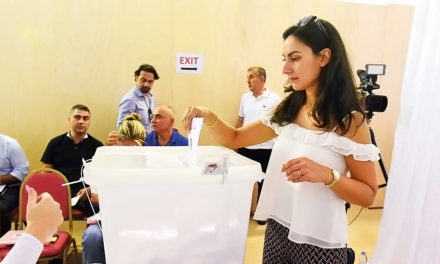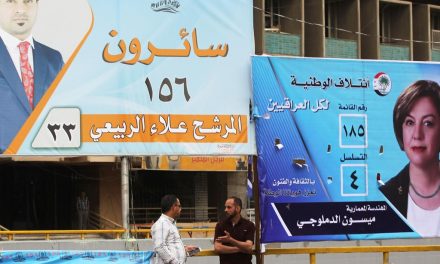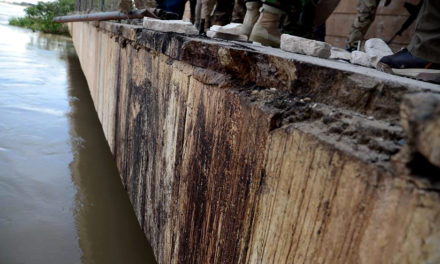What is worrying about yesterday’s incident is that it might be the first of a wider campaign against gay Iraqis because it came at the end of a week that was full of anti-gay rhetoric after European diplomats decided to raise the LGBT flag in Baghdad on Sunday to mark the International Day Against Homophobia and Transphobia. The naïve decision to raise the LGBT flag in a largely conservative country such as Iraq – although may have been well-intentioned – set off anti-gay sentiment in the country, which is probably the opposite of what the diplomats hoped to achieve.
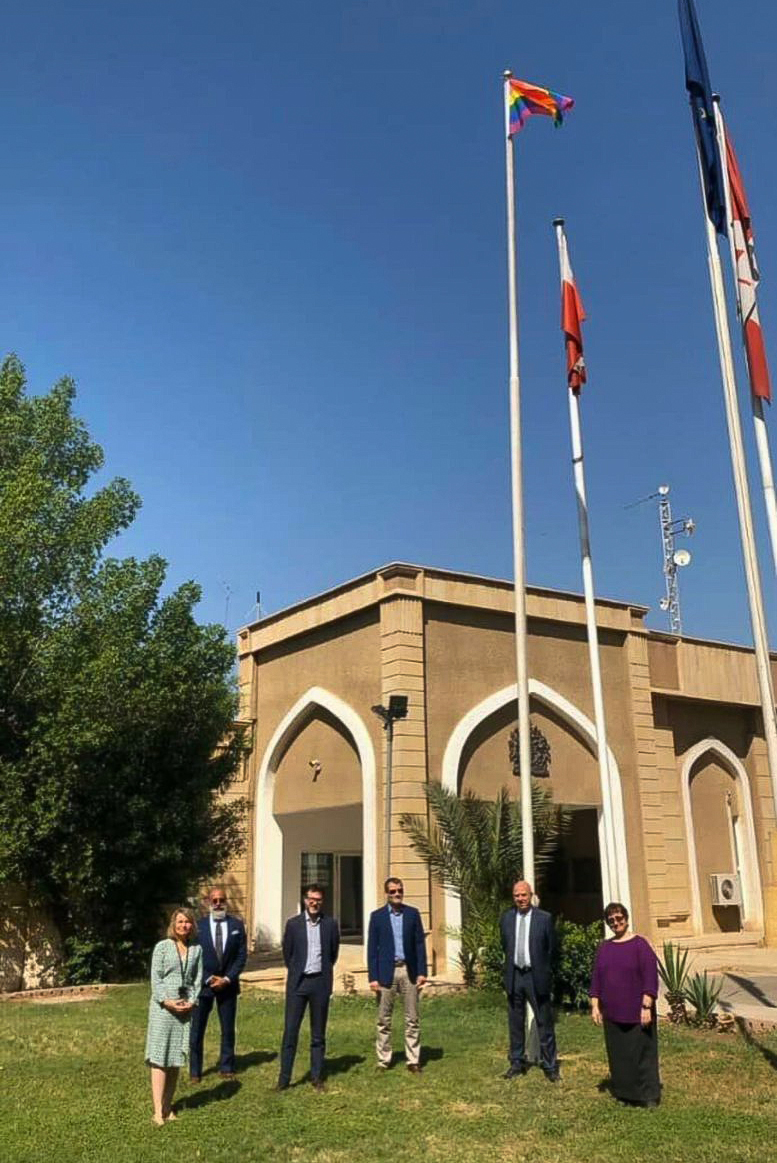
The diplomats’ decision to raise the flag drew intense backlash from some of Iraq’s most influential politicians. Hadi al-Ameri, leader of the Badr Organization and al-Fatah coalition bloc in parliament, called for the expulsion of diplomats. Dawa Party Secretary-General Nouri al-Maliki also called for the expulsion of the diplomats, saying in a statement that the European diplomats overstepped their diplomatic boundaries and insulted Iraqi society during the holy month of Ramadan. Muqtada al-Sadr, the leader of the Sadrist movement and the Sairoon parliamentary bloc also joined by condemning homosexuality as a “mental illness.” Deputy Speaker of the Iraqi Parliament, Basheer Haddad, and a member of the Kurdistan Democratic Party, said that he “will not allow the raising of the flag of homosexuals and on Iraqi soil,” and called on the Ministry of Foreign Affairs “to take the necessary measures against this behavior.” Given this hostile response this move engendered, the least we can say about the decision to raise the LGBT flag in Baghdad is that it was counterproductive.
I can give the benefit of the doubt to both sides of the argument and assume that they both have good intentions. Western diplomats simply want to raise awareness about LGBT rights using what they thought was a minor gesture, and Iraqi politicians, on the other hand, can be seen as well-intentioned as well since they are trying to preserve conservative ideals that are held by the majority of their constituents—but I’m not going to do that. It’s hard for me to see the diplomats’ move as anything more than futile virtue signaling. If not, then why didn’t they choose to do the same thing in other Middle Eastern and/or Muslim countries where LGBT people are suffering from similar or even worse persecution. Why didn’t they raise that flag in Saudi Arabia, for example? Do they not think that Saudis need help in this matter or is it because they think that Saudi LGBT people don’t deserve the same rights as their Iraqi counterparts? I suspect that European diplomats very well knew that pulling off such a move in Saudi would cost them politically and may even put at risk their economic interests in the country as a result of possible outrage from Wahhabi clergymen.
Provoking a storm of anti-gay sentiment was not the only unintended consequence of raising the LGBT flag, for it also hurt the broader protest movement. Ever since protests took off in October 2019, Islamist Iraqi politicians have been trying to paint the movement as a foreign, Western-fueled, conspiracy aimed at the heart of Iraqi societal values. This move was a Godsend to Iraqi politicians who have been struggling to win the moral high ground from the protesters. The move emboldened Iraqi politicians – who failed to give anything substantial to their base after many years of being in power – to speak up and do their own version of virtue signaling. Both sides paid lip service to their preferred base without doing anything with substance, all talk, and talk is (usually) free.
European diplomats should not force-feed ideals to the Iraqi society that took European societies decades or even centuries to embrace and expect Iraqis to accept them with no resistance. Iraqi society is conservative for the most part and it is unrealistic to think that Iraqis will embrace open homosexuality at this time given the nation’s culture and history. Islam, like other Abrahamic religions, forbids same sex relationships and so did the Iraqi state since independence in 1932 and even before that under direct British rule. Just 19 years ago, “sodomy” was punishable by death under the Saddam regime after the Revolutionary Command Council decision 234 in 2001 (although the decision also ambiguously combined it with adultery and rape and it is unclear if anyone received the death penalty solely because they were gay). Therefore, it would be unrealistic to think that raising a flag here or sharing a pro-LGBT tweet there would make Iraqis more tolerant of open homosexuality.
While it is true that democracy was airdropped on Iraq by the United States in 2003, that doesn’t mean that it was a good precedent to emulate, and judging by the turbulent course of the democratic process, we cannot even say that it was a successful one yet. If Iraqis desire more sexual freedoms and other civil liberties, they can achieve them on their own, and the latest protest movement that rocked the political establishment is evidence of a changing Iraqi mindset especially amongst the youth. Iraqis are not afraid to take what is theirs even in the face of sniper bullets, gas canisters and other forms of repression.
In the meantime, if European and other foreign diplomats want to help LGBT people in Iraq they should speak with Iraqi politicians and lawmakers and urge them to protect these people from physical harm by launching investigations to find the culprits behind the violence committed against them. LGBT Iraqis deserve equal protection from violence as other Iraqis. European diplomats should also urge Iraqi leaders to shut down media outlets that incite violence, which is something that lies outside the limits of free speech. However, such steps will cost Western diplomats precious time and political capital at those private meetings. They may find it easier to stick to self-important political posturing thinking that is benign and free of cost. But if last week showed us anything, it is that posturing does have a cost and it can cost lives.


